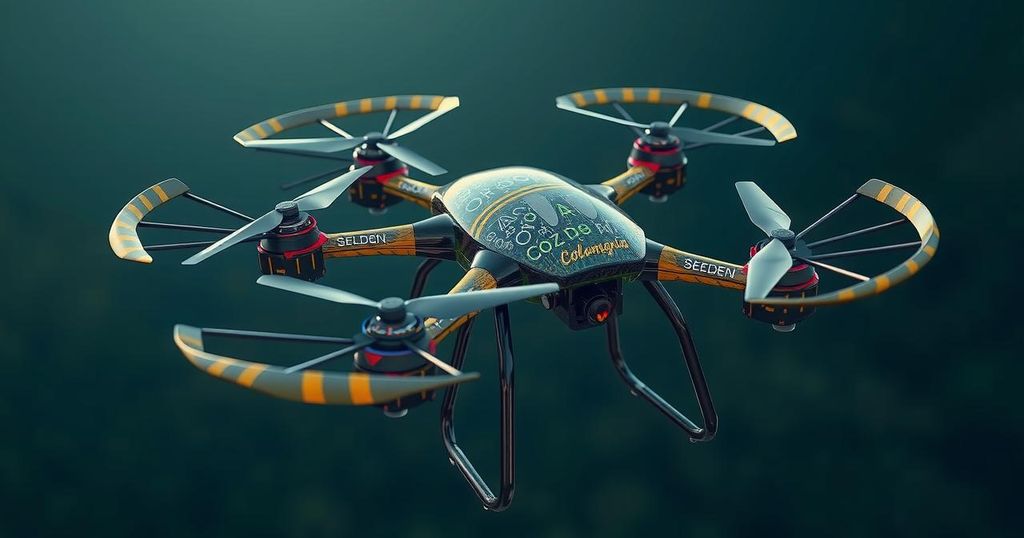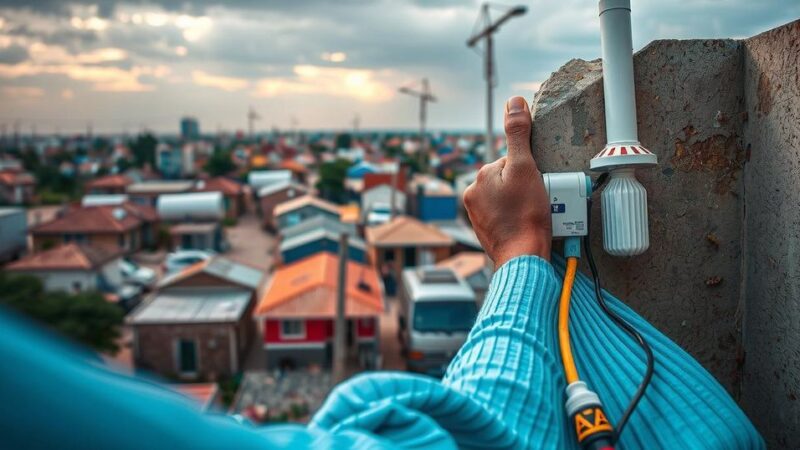The Combat Climate Change (C-3) project is a collaborative initiative between Colombia and Sweden, resulting in the development of an unmanned aerial vehicle (UAV) designed for climate monitoring. The UAV will collect data on greenhouse gas emissions and ecosystem health, complementing existing satellite data to enhance understanding of climate dynamics. Launched at COP16, the project represents a significant partnership between EAFIT University, KTH Royal Institute of Technology, and Saab, emphasizing international cooperation in mitigating climate change.
In an effort to combat climate change, a collaborative initiative has emerged between Colombia and Sweden, leading to the development of a new unmanned aerial vehicle (UAV) under the Combat Climate Change (C-3) project. This venture involves several key partners: the Swedish Minister for Climate and the Environment, the Colombian Minister of Science, Saab, EAFIT University from Colombia, and the KTH Royal Institute of Technology from Sweden. The formal announcement took place during COP16, with notable figures such as Romina Pourmokhtari (Swedish Minister for Climate and the Environment), Yesenia Olaya (Colombian Minister of Science), Eva Axelsson (Head of Group Sustainability at Saab), and Olga Lucía Quintero (academic project supervisor from EAFIT University) in attendance. The expertly crafted UAV is specially designed with advanced sensors that will facilitate the monitoring of greenhouse gas emissions, such as carbon dioxide and methane, alongside other atmospheric pollutants and aerosols. This innovation will further allow for the evaluation of ecosystems, particularly within the Amazon rainforest and agricultural areas, by identifying shifts in vegetation and alterations in soil health. The UAV’s data collection will complement existing satellite information by correlating airborne measurements with terrestrial images. The project aims to enhance the understanding of global climate dynamics by integrating these data into large-scale mathematical and AI-based models. As stated by Yesenia Olaya, “Contributing to mitigating climate change is one of the priorities of President Petro’s government and with the project announced today we move forward towards this goal that is of vital importance for all.” This statement emphasizes the project’s alignment with national objectives aimed at environmental stewardship. Eva Axelsson of Saab reiterated, “At Saab, we believe innovation and cooperation are key to counter climate change, while making people and society safe.” The project took its initial steps in February 2023, as a multinational group of engineers from KTH Royal Institute of Technology and EAFIT University collaborated on designing and constructing the UAV. The Combat Climate Change initiative stands as a testament to effective academic partnerships and reflects the importance of aligning scientific research with environmental objectives.
The Combat Climate Change (C-3) project exemplifies an international partnership aimed at addressing pressing global environmental issues through innovative technological solutions. As climate change poses significant risks to ecosystems and human societies, collaborative efforts such as this become crucial. By leveraging the expertise of universities and companies from different nations, the initiative seeks to utilize UAV technology for comprehensive environmental monitoring, thereby contributing valuable insights into climate dynamics and aiding in the development of policy responses.
The collaboration between Colombia and Sweden in the Combat Climate Change project signifies a proactive step toward addressing climate change through innovation. With the deployment of specialized unmanned aerial vehicles, the initiative aims to enhance climate monitoring and ecosystem assessment. As nations confront the challenges of environmental change, such partnerships illuminate the potential for scientific and technological advancements to support global sustainability efforts. The partnership reinforces the importance of shared commitments to innovative solutions against climate change, thereby fortifying international cooperation in this critical domain.
Original Source: www.saab.com







